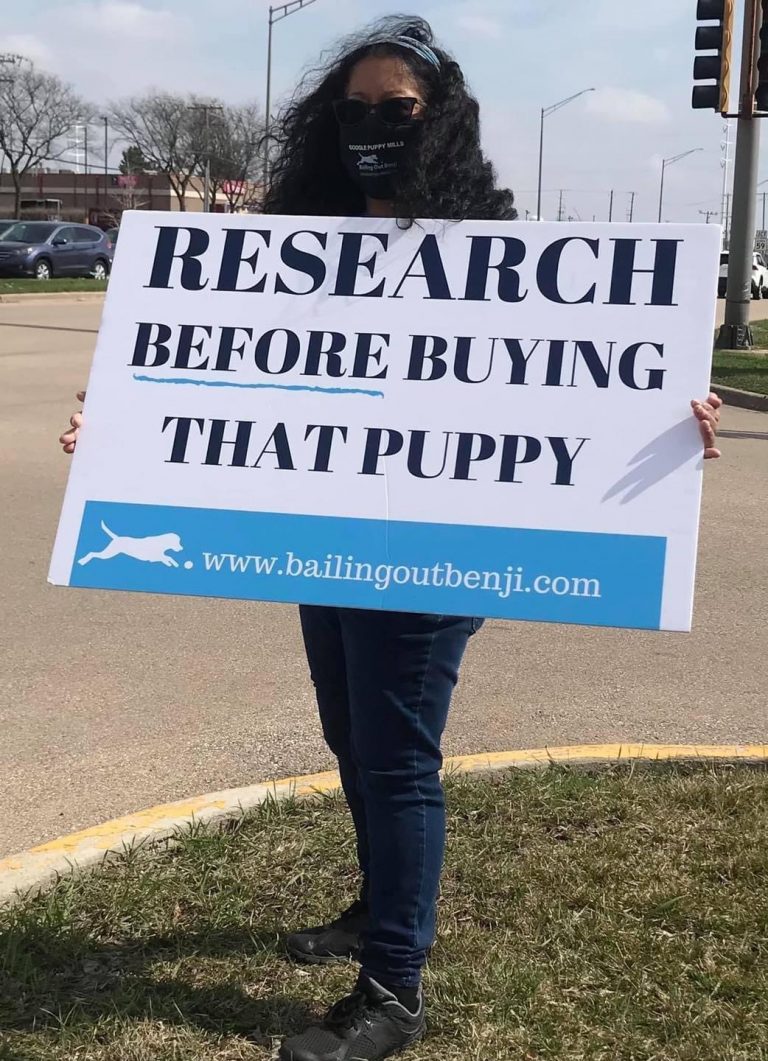©Bailing Out Benji 2025
All research and information was done by Bailing Out Benji
and must be cited as such when shared or quoted!
Colorado Pet Import Audit Reveals Gaps in Oversight and Urges Caution for Prospective Pet Owners
An audit conducted by Bailing Out Benji has revealed troubling trends in Colorado’s pet import system, highlighting the need for more public transparency and stronger consumer awareness. The study was initiated in response to discussions around the potential sunsetting of PACFA (Pet Animal Care Facilities Act), which provides oversight for animal-related businesses in Colorado. Bailing Out Benji was asked to weigh in on the sunset discussion as a stakeholder in the conversation and we later performed this audit to help provide statistics and context for the department.
Using over 10,000 Certificates of Veterinary Inspection (CVIs) from 2024, our audit traced thousands of canines brought into the state of Colorado, offering a detailed look into where pets are coming from and the conditions under which they’re bred and sold. This is the first time that an audit has been performed for the state of Colorado.
Methodology: In order to collect this data, Bailing Out Benji first received all of the 2024 canine imports from PACFA and then cross-referenced each seller and buyer with state and federal licensing lists in order to obtain licensing or violation history. All of this information can be independently verified.
Key Findings
Breeder or Broker Import Statistics
480 dogs or puppies were transferred into breeding or brokering facilities within Colorado from other breeding operations.
- 98% of these were tied to facilities believed to be improperly licensed or completely unlicensed.
- These findings triggered complaints against 13 facilities.
Personal and Direct Sales Statistics
- 58% of imported puppies in direct sales came from states with no breeder licensing requirements.
- 14% came via transport companies with known violations and no clear origin.
- In states that require licensing:
- 50% of puppies were linked to facilities with violations.
- 8% came through brokers.
- These findings led to complaints on 14 facilities across various states.
Pet Store Import Statistics
From 3,738 puppy imports destined for retail pet stores:
- 82% came through USDA-licensed brokers- meaning their true origin is unknown.
- 7% were from facilities with documented violations.
- 0.4% originated from unlicensed breeders.
Shelter and Rescue Import Statistics
This information comes after auditing the origins of more than 14,400 dogs and puppies entering the state of Colorado in 2024.
- 12,000 canines were transferred into Colorado shelters from other sheltering organizations.
- An additional 2,400 puppies and few dogs were transferred from breeders or brokers to rescue organizations- accounting for 17% of total shelter and rescue imports.
- These findings prompted one complaint on a rescue organization.

Why This Matters: The Importance of Research Before Getting a Pet
This audit underscores a critical message for prospective pet owners: research is essential before acquiring a pet. Many puppies sold in pet stores or through online ads may come from questionable sources- including unlicensed breeders or facilities with repeated animal welfare violations. Sadly, the research shows that rescue organizations can source directly from puppy mills and other questionable sources as well.
Acquiring a pet without doing proper research not only helps to support inhumane breeding practices but also increases the risk of health or behavioral issues in animals, which can result in emotional and financial strain for new owners.
How to Protect Yourself and Animals
- Adopt from legitimate local shelters or rescues with transparent practices and a solid reputation.
- Ask questions about where their puppies come from and if they pay for the dogs and puppies they receive from breeders.
- Ask for documentation about the breeder or source- especially USDA inspection reports.
- This goes for pet stores, online resellers, and rescues. Ask for all of the information you need to feel comfortable before giving any money to the business.
- Avoid any organization unwilling to answer basic questions about where the animal came from. Transparency is the only way you can be certain that you aren’t supporting a less than reputable business with your purchase.
To view a full list of things to ask before buying a puppy, please view our advice here.
Rescue Red Flags
After performing this audit, our team found it necessary to file a licensing complaint with the USDA on a rescue that is seemingly acting as a broker. We were able to document the transfer of more than 300 puppies into the rescue from a notorious Iowa broker in one calendar year. These puppies were all 14 weeks old or less and were very desirable breeds. While many rescues across the country receive dogs from breeders, it is extremely rare and concerning to have a rescue sourcing a never-ending supply of puppies from a broker that not only buys from breeders with violations but sells through pet stores, websites, and newspaper ads.
Warning signs of suspicious rescues:
- The organization frequently has young puppies of desirable breeds available.
- Puppies are priced similarly to those in pet stores, often with vague or extremely high “adoption fees.”
- The group cannot or will not disclose where the animals came from.
To view more information about retail or unethical rescues, please click here.
Bailing Out Benji’s findings serve as a wake-up call- not just for lawmakers considering changes to PACFA, but for every individual thinking of bringing a new pet into their home. Informed choices can protect animals and ensure that pet ownership begins with compassion and responsibility. And for advocates, it is crucial that we expand our educational efforts to include all of the ways that consumers can unknowingly support the puppy mill industry.
This audit cost approximately $6500 and took two weeks for our staff to finalize, which is a heavy burden on our small nonprofit (we were not paid by the state to do this audit). If you would like to make a donation to support our work, please click the link below and consider giving a one-time or monthly gift.

